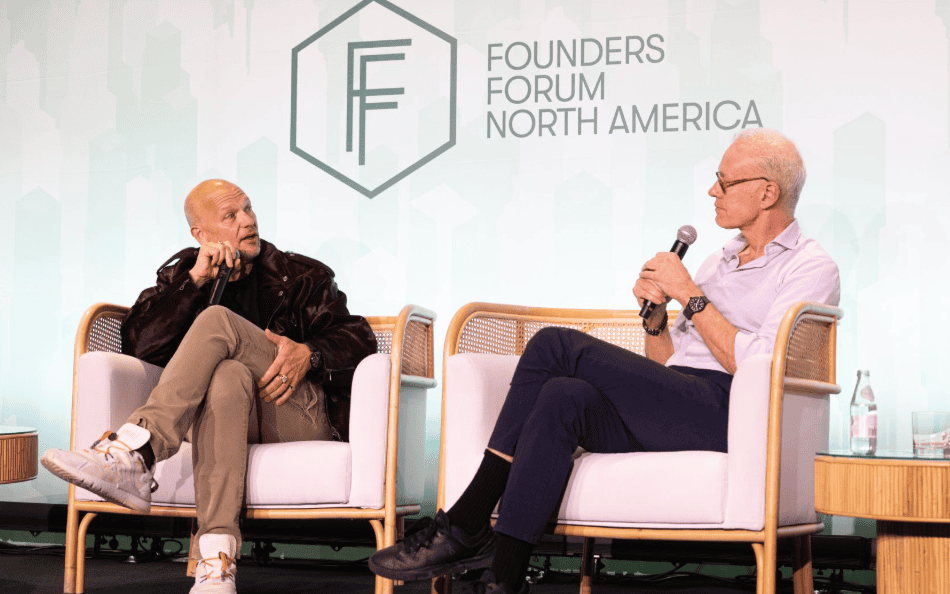Last updated on February 27, 2023
Jeremy O’Brien and PsiQuantum were once thought of as “lunatic fanatics on the fringes of quantum tech.” Now, they’re leading the race for a world-changing one million qubit quantum computer. Read more in our CEO Forecast 2023.
“You need a million qubit quantum computer to do anything useful,” says Jeremy O’Brien, Co-Founder and CEO of PsiQuantum, which is building the world’s first utility-scale, error-corrected quantum computer.
The world of quantum computing has reached its inflection point. For years, scientists have fought for quantum supremacy, with small, noisy systems battling over incremental increases in computing power.
Now, Jeremy says, people are waking up to the fact that you need a one million qubit quantum computer to ensure fault tolerance and error correction, and unleash quantum computing’s potential.
“Any hope to the contrary is unwarranted and diminishing by the day. The only thing that’s interesting in quantum is large-scale, one million qubit, error-corrected quantum computing – and that’s coming sooner than people think.”
Quantum Computing Use Cases, from Pharma to Energy
The ability of quantum computers to simulate chemistry – and thereby design new molecules and materials – could be transformative for the climate in the next decade.
To produce ammonia, for example – used for producing fertilisers, synthetic fibres, plastics, and pharmaceuticals – we combine nitrogen with hydrogen in a factory using huge amounts of energy and natural gas in a process invented in 1910.
Microbes in the soil run that same process in ambient conditions, using water rather than gas. With a quantum computer, we could simulate the process to understand how it works and then replicate it to create a cheaper and more environmentally-friendly solution.
“We’ll see world-changing applications of quantum by 2030,” Jeremy says. “From making better battery cells to designing new pharmaceuticals, these discoveries become possible overnight with quantum computing.”
Scaling to a Million Qubit Quantum Computer
The scaling challenges for quantum computing are more about systems engineering than quantum itself. You need extremely low temperatures for most quantum computers to operate and wiring up a one million qubit machine is no mean feat.
“The breakthroughs in quantum computing will come from solving those scaling challenges: manufacturability, cooling power, control electronics, and connectivity,” Jeremy notes.
PsiQuantum leverages tools from the multi-billion dollar semiconductor industry to manufacture the components of quantum computers at room temperature and at scale. In a physics lab, progress is slow and incremental. In the semiconductor industry, it’s normal to design a prototype and then manufacture at scale.
“We were once seen as lunatic fanatics on the fringes of quantum tech,” Jeremy laughs.
Now, building a business focused exclusively on the engineering challenges of large-scale quantum computing is paying off and PsiQuantum, which has raised over $700m in venture funding, is manufacturing quantum chips on the production lines of global semiconductor foundries.
In January, PsiQuantum partnered with the US government agency, the Defence Advanced Research Projects Agency (DARPA), to accelerate the building of the world’s first utility-scale quantum computer.
Yet even when we achieve quantum computing at scale, companies can’t take access for granted.
“That’s going to create an interesting dynamic where suddenly we’ll have the technology able to answer questions with huge value across industries, but not every company – or country – will be able to leverage it,” Jeremy warns.
“Companies need to to build partnerships with full stack quantum computing firms and hire specialists to prepare for quantum computing.”
Download our CEO Forecast 2023 for more insider insights from the world’s top founders.

 All Posts
All Posts


